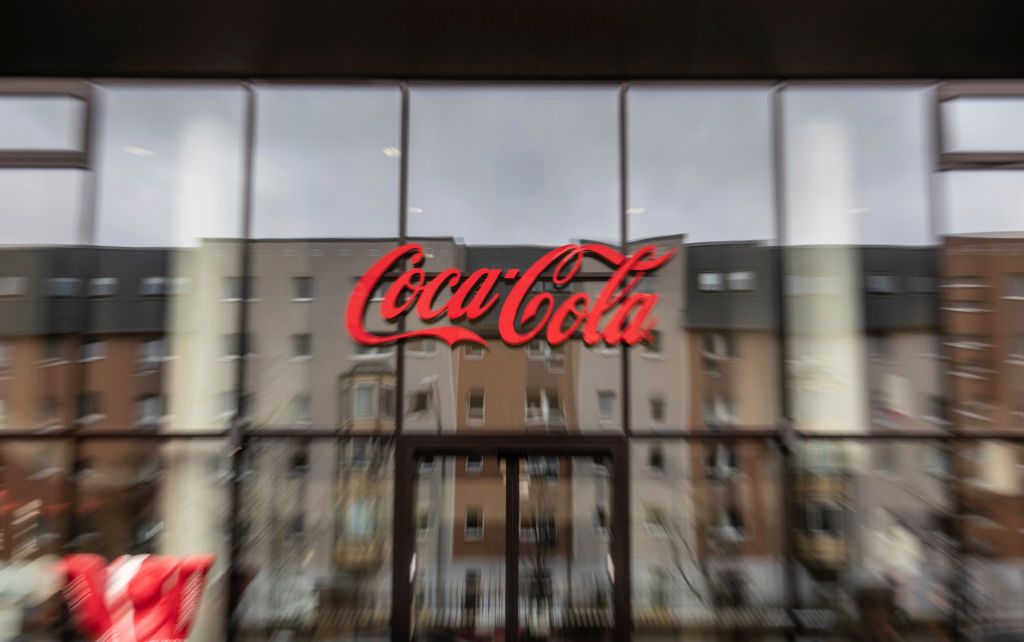‘Be Less White’: Coca-Cola Addresses Backlash For Employees’ Training Program On Race

Source: picture alliance / Getty
One of the most recognizable corporate brands has responded to the backlash over portions of a training program for its employees on the topic of race. Critics have complained that Coca-Cola is “forcing” its workers to “be less white,” but the soft drink company is pushing back against that narrative.
Karlyn Borysenko, who describes herself as a “Former Democrat” and “Unwoke activist,” posted a tweet on Friday that went viral for bringing attention the “Confronting racism” training program by Coca-Cola in question.
“BREAKING,” Borysenko tweeted. “Coca-Cola is forcing employees to complete online training telling them to ‘try to be less white.’” The tweet was accompanied by screenshots from the training session, including one portion entitled, “Understanding What it Means to Be White, Challenging What it Means to Be Racist.” Another part listed a number of answers addressing what it means “To be less white.” One of the answers was “be less arrogant.”
Borysenko said the screenshots were “from an internal whistleblower.”
BREAKING: Coca-Cola is forcing employees to complete online training telling them to “try to be less white.”
These images are from an internal whistleblower: pic.twitter.com/gRi4N20esZ
— Karlyn supports banning critical race theory in NH (@DrKarlynB) February 19, 2021
Later that same day, Coca-Cola responded to what had by that time become a growing online mob coming for the company and accusing it of so-called reverse racism. Coca-Cola quickly shot down Borysenko’s premise that “an internal whistleblower” with exclusive access to the training video secretly shared screenshots.
Describing the training as being “publicly available” on LinkedIn, Coca-Cola said in a brief statement that it “is not a focus of our company’s curriculum.” But it didn’t back away from the training, either.
“Our Better Together global learning curriculum is part of a learning plan to help build an inclusive workplace,” the statement continued. It said diversity, equity and inclusion” were among the “variety of topics” covered by the learning plan.
Statement from @CocaCola: https://t.co/Jzur7zuXFz pic.twitter.com/DBIpsj5706
— Chris Pandolfo (@ChrisCPandolfo) February 20, 2021
One aspect of the social media controversy that Borysenko conveniently glossed over is how Coca-Cola has a decided history of having an anti-Black agenda beginning about 100 years ago.
Coca-Cola, which at the time contained cocaine, ultimately removed the narcotic ingredient because — as the New York Times reported — “Middle-class whites worried that soft drinks were contributing to what they saw as exploding cocaine use among African-Americans.” However, the Times wrote, “Coke’s recipe wasn’t the only thing influenced by white supremacy: through the 1920s and ’30s, it studiously ignored the African-American market. Promotional material appeared in segregated locations that served both races, but rarely in those that catered to African-Americans alone.”
In 2012, sixteen Black and Hispanic employees at Coca-Cola filed a lawsuit claiming that they have been forced to work under conditions categorized as racially discriminatory and hostile environments. One the workers claimed she was ridiculed in a derogatory manner and referred to as “nappy head and Aunt JaMamma” on the work floor without any disciplinary action taken against her verbal abuser.
Prior to that, an April 1999 lawsuit filed by Black employees accused Coca-Cola of erecting a corporate hierarchy in which Black employees were clustered at the bottom of the pay scale, averaging $26,000 a year less than white workers were compensated. In November 2000, in what was then the largest settlement ever in a racial discrimination case, Coca-Cola agreed to fork over more than $192 million to resolve the federal lawsuit. Part of that settlement provided for implementing changes for how the company manages, promotes and treats Black employees.
Coca-Cola has pledged a work environment of racial equity.
SEE ALSO:
National Urban League Unveils Initiative To Close Digital Divide
Morehouse School Of Medicine On A Mission To Increase Representation Of Black Doctors
[ione_media_gallery id=”4094214″ overlay=”true”]

